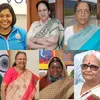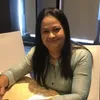Meet the 23-year-old changemaker battling gender bias and working to help the underprivileged
Writer and changemaker Alice Sharma is working to help the vulnerable in Delhi. Despite multiple challenges, her organisation helped more than 15,000 people in slum areas amidst the pandemic.
In 2013, Uttarakhand saw catastrophic floods - the country’s worst disaster since the 2004 tsunami. According to the National Institute of Disaster Management's India Disaster Report 2013, about 169 lives were lost and more than 4,000 people were “presumed dead”.
Alice Sharma, then 16 years old, was in Kedarnath, the centre of the disaster, at that time. She had gone there on a pilgrimage tour with her friends and family.
“I was stuck in a room with 20 people and it was hell to see people die and others abandon their family members’ bodies to survive themselves. I didn't know if I would be going back home,” she recalls.
After surviving the disaster with a newfound value for life, Alice vowed to help and uplift the underprivileged to the best of her capacity.
Standing up to serve
In the winter of 2018, with the toll from cold rapidly increasing in her hometown, Delhi, Alice founded Vastra aur Zindagiyan Foundation and began helping the vulnerable community. With a core team of 10 people and nearly 60 volunteers, the organisation provided food, clothes, and blankets to homeless people living by the roadside.
The non-profit organisation, currently under the process of registration, relies on crowdsourcing to run its centre near Chawri Bazaar in Delhi.
When the nationwide lockdown was announced in March 2020, the team was able to help more than 15,000 people across slum areas of Delhi.
However, it proved to be a tough time for Alice and her team for two reasons. The first was the challenge of funds drying up - people were struggling to manage their daily bread and butter during the pandemic and contributions went down.
She also had to live in self-isolation during the three months doing groundwork.
“Although it has been the best experience, we were also working at the risk of being infected by COVID-19 ourselves. We had to isolate ourselves because at the end of the day, we are still people who have to get back to our families. We were going out and meeting hundreds of people daily with absolutely no hygiene maintenance,” she says.
Speaking on other issues, Alice says it is high time society did away with stigmatising menstruation and other hygiene-related concerns because even in a dire situation such as the pandemic, women in slum areas refused to accept sanitary napkins.
Her team members explained the health hazards of unhygienic practices during menstruation and managed to convince about 80 percent of the women.
In the social sector, Alice says finding like-minded people to form a team willing to work for a social cause without income was also a challenge in the beginning.

Vastra aur Zindagiyan Foundation during groundwork
‘Gender bias is everywhere’
As a child, Alice didn’t plan what she wanted to do after “growing up”. Her family of lawyers expected her to follow in their footsteps.
After securing admission at a decent law school in 2016, she had to take a year’s break due to health concerns.
“With a year to myself, I started blogging. The blogs went viral with little competition at the time and I realised that writing was my thing,” says Alice, who has now authored seven books. She was also named among “100 leading ladies of India” by the Indian National BAR Association (INBA).
However, she says the gender bias has had a bearing on her work, as a writer and changemaker.
Alice shares an incident where she and a man had prepared a presentation to get a chance to work at a rehabilitation centre.
“Even though everyone believed my presentation was 10 times better than his, the coordinator felt he would be able to handle certain situations better just because he was a man. They thought a woman was not tough enough to handle drug addicts,” she recalls.
Having worked with over 15 NGOs, Alice says there is a perception that women must step back on field work. She adds, “People can't take powerful women. They will call you dominating and anything, but they not acknowledge the hard work you put in.”
Having completed her bachelors in political science from a Delhi University-affiliated college, she is looking to pursue her master’s in social work.
Alice says that her family members have come around with the choices she made in life today, be it starting an NGO or becoming a writer. “At first, I faced massive backlash but then you can cheat on anything in this world but not your passion.”
Edited by Teja Lele









